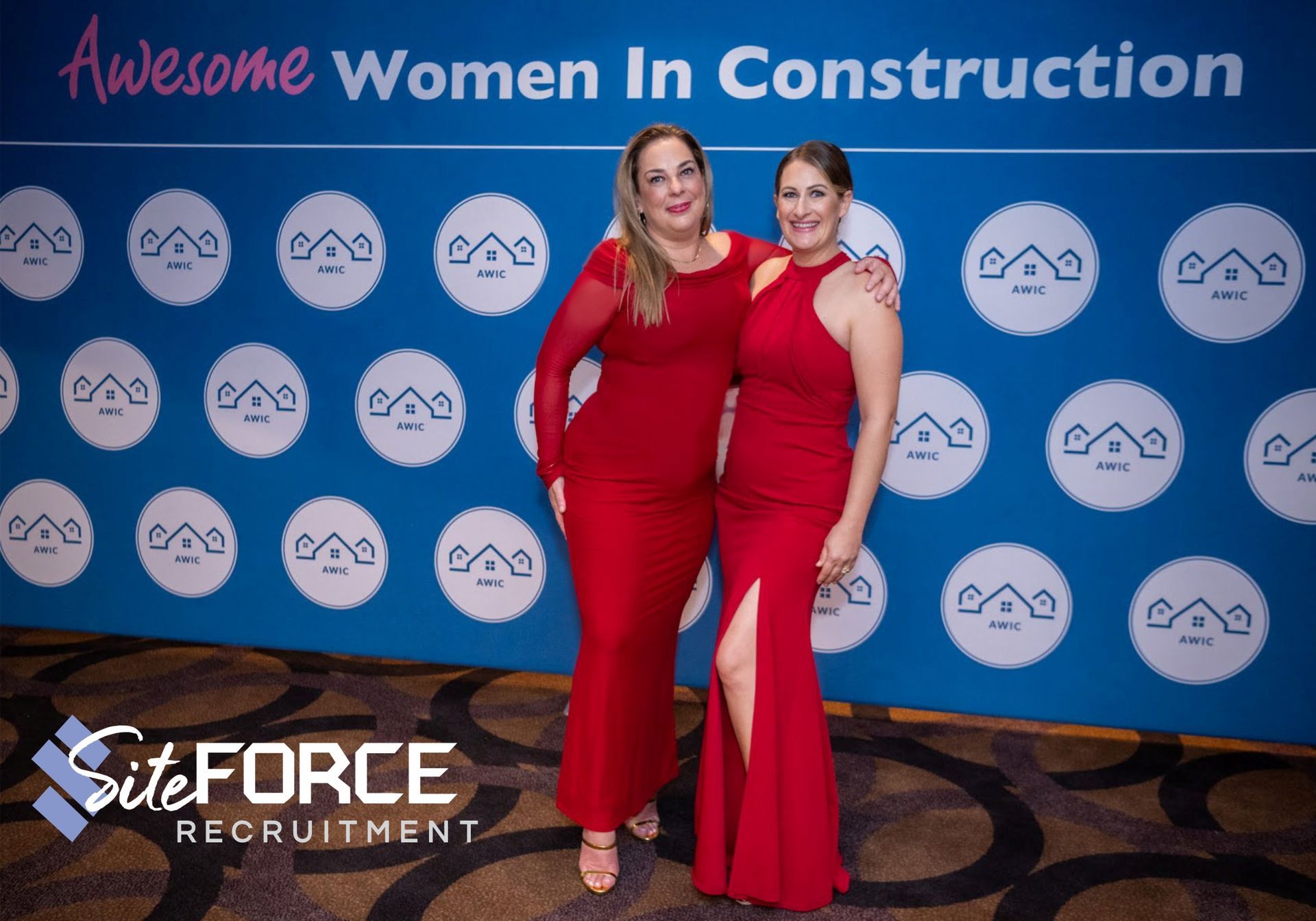WOULD YOU DARE TO BE AN ‘UNDERCOVER BOSS’?
Creating a more motivated and productive workforce

"Undercover Boss" is a reality television series that is extremely popular and has had several renewals. It features upper-management executives or owners who go undercover disguised with makeovers as entry-level employees within their own companies. The show leverages several psychological principles that contributed to its appeal and impact, and provides a roadmap for creating a more motivated and productive workplace.
It was very confronting for some executives, managers and owners (lets group them as ‘bosses’ for purpose of this article’). It is something that we have also noticed when discussing engaging staff and identifying the workplace culture so we can fit the right person to the right job. Often bosses do not know about their workplace culture, and some are even scared to talk to their employees.
Of course, engaging us as an intermediary is one solution (has anyone told you we experts at engagement?), however we are often asked what bosses can do to foster a more positive and productive work environment. Here’s our observations and 6 Step RoadMap for Improving Workplace Culture.
About the show and how they uncovered workplace culture:
A brief overview of the show, was the undercover boss was disguised with makeovers, they work alongside their employees, performing various tasks to gain insight into the workplace culture, the day-to-day operations and challenges faced by their workforce. Each episode typically follows the boss through several locations and job roles within the company.
Throughout the show, the boss often uncovers issues such as inefficient processes, employee dissatisfaction, low workplace morale and other operational problems. They also frequently encounter dedicated and hardworking employees who might be struggling or excelling without proper recognition.
At the end of the episode, the boss reveals their true identity and often takes steps to address the problems discovered. This can include changes in company policy, process, organisation, financial rewards, promotions for deserving employees, personal gestures of gratitude, and an improved workplace culture overall.
The Psychological Principles Behind the Show and improving workplace culture
Overall, "Undercover Boss" uses these psychological principles to create compelling narratives that resonate with both participants and viewers, highlighting the importance of empathy, recognition, and transformational change in the workplace.
The show leverages several psychological principles that contribute to its appeal and impact, including:-
1. Empathy and Perspective-Taking:
- Empathy: By placing bosses in the shoes of their employees, the show highlights the emotional and physical challenges of the workers' everyday tasks. This promotes empathy, allowing bosses to better understand and relate to their employees' experiences.
- Perspective-Taking: Bosses gain a first-hand perspective of the operational and personal struggles employees face, which is crucial for informed and empathetic decision-making.
2. Cognitive Dissonance:
Bosses often experience cognitive dissonance (the mental discomfort that results from holding two conflicting believes, values or attitudes) when their preconceptions about the company and its employees clash with the reality they witness. This psychological discomfort drives them to resolve the inconsistency, usually by making positive changes.
3. Social Exchange Theory:
The interactions between the undercover boss and employees can be analysed through social exchange theory (the benefits of a relationship less the cost of the relationship in order to determine its worth), which suggests that social behaviour is the result of an exchange process to maximise benefits and minimise costs. Positive recognition and rewards from the boss can lead to higher employee morale and loyalty, fostering a more productive work environment.
4. Transformational Leadership:
The show often concludes with bosses engaging in transformational leadership behaviours, such as inspiring and motivating employees, recognising their hard work, and making systemic changes to improve the workplace. This can lead to increased employee engagement and job satisfaction.
5. Reinforcement and Motivation:
Positive reinforcement is a key aspect of the show. When bosses reward employees for their hard work, it not only motivates the rewarded employees but also sets an example for others. The visibility of such rewards on television can enhance motivation across the company.
6. Public Accountability:
The public nature of the show adds a layer of accountability for the bosses. Knowing that their actions and decisions will be broadcast to a wide audience encourages bosses to act more compassionately and responsibly.
One size does NOT fit all
A fundamental assumption in the show that we are really interested in, is – one size does not fit all. We know this in our vast experience of matching people to jobs and workplace cultures. If a boss is not engaging with employees, and there is an expectation from the employee for higher engagement, the end result will likely be declining productivity. So it is crucial in recruitment to have the ability to gauge and understand the personality of both the boss and the worker to ensure a good fit.
If you aren’t interested, that is ok too. There is no right and wrong. That is simply part of the mix, that requires the right framework around that attitude that needs addressing (ie engaging a HR manager, or outsourcing engagement and employment).
The 6 Step RoadMap to Improving Workplace Culture
The lessons from "Undercover Boss" provide a roadmap for creating a more empathetic, motivated, and productive workplace. Here’s how insights from the show can be invaluable for bosses looking to improve workplace culture. Everyday bosses can implement these lessons to foster a positive and productive work environment.
1. Addressing Empathy and Perspective-Taking
One of the core lessons from "Undercover Boss" is the importance of empathy and perspective-taking. Bosses who participate in the show often come away with a newfound respect and understanding of their employees' daily struggles. To cultivate this in your workplace:
- Engage in Regular Site Visits: Spend time in different departments or on your sites, not just to observe but to participate. This isn’t a ‘walk through’ – it’s a stop and listen This can help you understand the challenges your employees face, and safety issues not being addressed, and show them that you value their contributions.
- Open Dialogue: Encourage open communication by holding regular one-on-one meetings where employees can voice their concerns and ideas without fear of retribution. If you’re unsure of what to say here, check out our blog: ‘The Art of Conducting Employee Reviews – Constructing a Constructive Conversation’
2. Addressing Cognitive Dissonance
Cognitive dissonance occurs when there is a mismatch between beliefs and reality, often leading to discomfort and the drive to make changes. Bosses on "Undercover Boss" frequently experience this when they see the gaps between their perceptions and the actual working conditions. To address this:
- Self-Assessment: Regularly review your assumptions about the workplace. Are your policies, processes and practices aligned with the actual needs and experiences of your employees?
- Solicit Feedback: Use anonymous surveys or suggestion boxes to gather honest feedback from employees about their work environment and processes.
3. Leveraging Social Exchange Theory
According to social exchange theory, relationships are built on the expectation of mutual benefit. Positive interactions and rewards can lead to greater loyalty and productivity. Implement this by:
- Recognise and Reward: Regularly acknowledge employees' hard work and achievements. This could be through formal recognition programs, bonuses, or simple acts of appreciation. Ask them what they like, want or need. It’s no use putting a bbq on Friday afternoon, if you have family people trapped in the slow lane late for their family time, and you find no one wants to turn up. Make sure it resonates with the employee.
- Create Development Opportunities: Invest in your employees' growth by offering training programs, career development workshops, and clear pathways for advancement.
4. Embracing Transformational Leadership
Transformational leadership involves inspiring and motivating employees, fostering innovation, and making systemic changes to improve the workplace. Steps to become a transformational leader include:
- Set a Vision: Clearly articulate your vision for the company and how each employee contributes to this goal. This can provide a sense of purpose and direction, and creates support and buy-in from the employee. A sense of purpose and alignment with the company’s overarching goals enhances motivation and productivity.
- Encourage Innovation: Create a culture where new ideas are welcomed and rewarded. Hold brainstorming sessions and implement a system for evaluating and acting on employee suggestions.
5. Positive Reinforcement and Motivation
Positive reinforcement can significantly boost morale and productivity. To harness this:
- Public Recognition: Highlight employee achievements in company-wide meetings, newsletters, or through social media. Public recognition not only rewards the individual but also sets a standard for others.
- The Personal Approach: Sometimes, a personal note or a face-to-face thank you can have a profound impact on employee motivation.
6. Accountability and Transparency
The public nature of the show adds a layer of accountability for the bosses highlighting the benefit of:-
- Transparent Communication: Be open about company goals, challenges, and decisions. Transparency builds trust and helps employees feel more connected to the organisation’s success.
- Accountability Structures: Establish clear metrics for performance and regularly review them. Hold everyone, including yourself, accountable to these standards.
By engaging with employees, recognising their contributions, and fostering a culture of open communication and innovation, bosses can transform their workplace culture. Implementing these strategies can lead to a more harmonious and successful organisation where employees feel valued and empowered to contribute their best work.
If you loved this article, you would really enjoy my blog on 'Seek to Understand Not Sideline – Unconscious Bias'.
Our Superpower
Our leading 'superpower' is attracting and retaining quality team members who share our values of honesty, integrity, diligence, and service, allowing us to deploy quality team members on client sites quickly.
Our team member's superpower is being motivated, prepared and ready to enthusiastically contribute to the projects at hand, more than just a pair of hands.
Related articles:
Read other informative articles for both employers and workers at: https://www.siteforcerecruitment.com.au/blogs
Chantal Penny is the Director with Superpowers of SiteForce Recruitment. A thought leader in the industry, Chantal, based on her expertise and industry perspective, offers unique guidance, inspiration, and influence in the industry. Chantal Penny is also a thought leader in the industry with her Podcast, Talent Instinct, which is available at:
https://talentinstinctpodcast.libsyn.com/site
At SiteForce Recruitment, we specialise in labour-hire and permanent recruitment in the construction industry. We are committed to valuing people, safety and wellbeing, collaboration, trust and, of course – results!
CONNECT with us via our contact page or bookings links on our website if you are looking to recruit for, get your dream job, or join our amazing labour force team.











